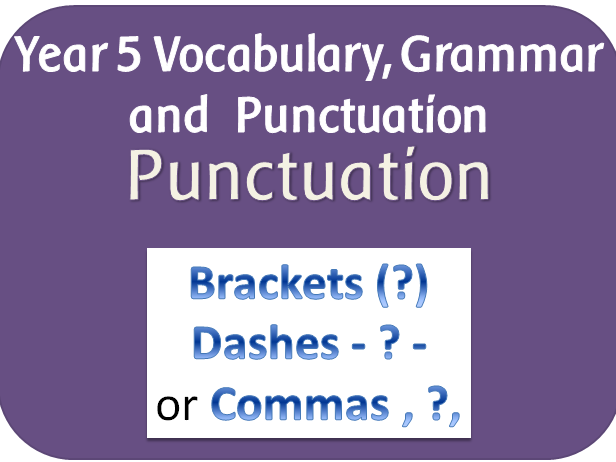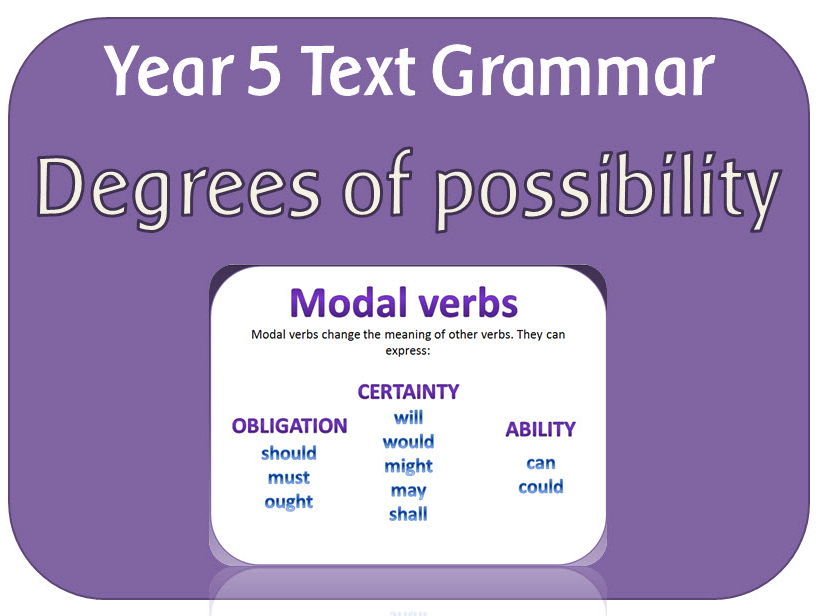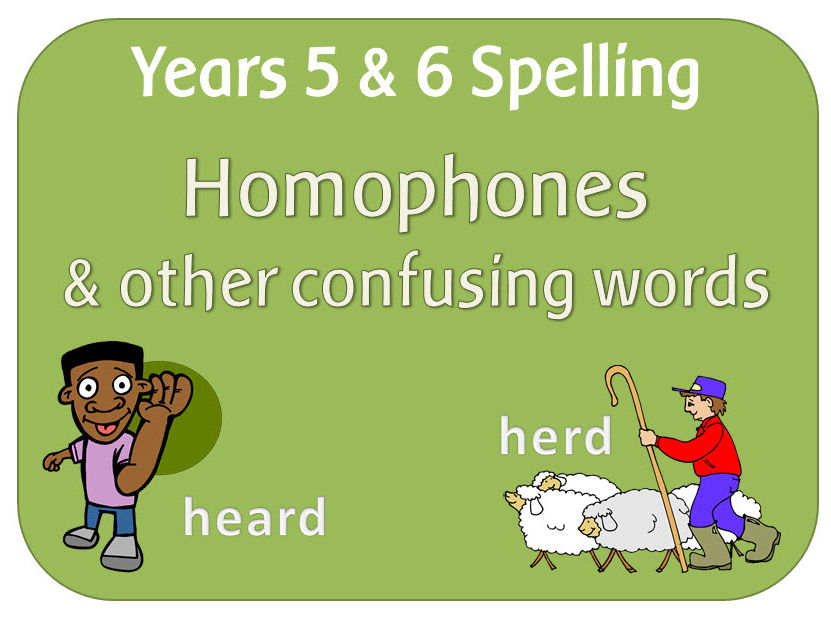
404Uploads
1072k+Views
683k+Downloads
English language arts

SPaG Year 6 Terminology powerpoint
A powerpoint explaining the terminology for pupils in Y6: subject, object, active, passive, synonym, antonym
ellipsis, hyphen, colon, semi-colon and bullet points.

SPaG Year 6 Text Grammar: Linking ideas using cohesive devices
A powepoint and display file to help children remember a range of cohesive devices in their writing.
POWERPOINT:
Cohesive devises: Looks at and explains cohesive devices such as synonyms; pronouns; verb tenses; repetition of a phrase; adverbials and ellipses
PRINTABLE FILE (PDF):
Cohesive devices display: For reference - it contains all the terminology above.

SPaG Year 6 Sentence Grammar: Informal and formal writing powerpoint
The powerpoint explains how to change writing styles/register according to audience, purpose and text, and what tone to use for each. Shows examples of similar sentence written in a formal and an informal style. Ends with an activity where the children have to turn an informal sentence into a formal one.

SPaG Year 6 Sentence Grammar: Use of the passive
POWERPOINT: Explanation of active and passive sentences and how to arrange an active sentence to make it passive. Explains how and when passive sentences can be used
PRINTABLE FILES (PDF): Passive sentences worksheet: Change the active sentences into passive sentences

SPaG Year 6 Word Grammar: How words are related by meaning as synonyms and antonyms
POWERPOINTS:
The history of the English language: A history, plus an explanation of why the English language has so many synonyms.
Synonyms: Explains what they are and gives 11 words with related synonyms.
Antonyms: Explains what they are and gives 12 words with corresponding antonyms, plus 7 words with several antonyms.
Antonyms and prefixes beginning with 'i': Formation of antonyms by adding im, in or il to words.
Antonyms and prefixes recap: Activity to make words by adding a range of prefixes covered in previous years, to make antonyms.
PRINTABLE FILES (PDF):
Synonyms worksheet: For finding synonyms
Antonyms worksheet: re-write the sentences to make it mean the opposite
House for sale - antonyms worksheet: Rewrite the advert using antonyms
House for sale - synonyms worksheet: Rewrite the advert using synonyms
Antonym cards (2 sets): Matching sets - easy and more difficult

SPaG Year 6 Word Grammar: Formal and informal vocabulary
A powerpoint lesson and worksheet to teach the difference between vocabulary typical of informal speech and vocabulary appropriate for formal speech and writing.

SPaG Year 5 Terminology powerpoint
Explains the terminology specified in Y5: modal verb, relative pronoun, relative clause, parenthesis, cohesion and ambiguity.

SPaG Year 5 Punctuation: Parenthesis (brackets, dashes, commas) and commas to clarify meaning
This pack contains 2 powerpoint lessons:
Parenthesis: How brackets, dashes or commas can be used to indicate parenthesis.
Commas: Gives examples of what can happen if commas are omitted, and how they are important to the intended meaning.

SPaG Year 5 Sentence Grammar: Relative clauses beginning with who, which, etc
A set of Y5 resources to teach about relative clauses beginning with who, which, where, when, whose, that, or an omitted relative pronoun
POWERPOINTS:
Relative clauses - pronouns who which that
Relative clauses with pronoun whose
Relative clauses with when and where
PRINTABLE FILES (PDF):
Relative clauses worksheet who which that
Relative clauses worksheet whose
Relative clauses worksheet when & where

SPaG Year 5 Sentence Grammar: Degrees of possibility using adverbs or modal verbs
A powerpoint teaching about how to indicate degrees of possibility using adverbs or modal verbs might, should, will, must.

SPaG Year 5 Word Grammar: Verb prefixes
A set of powerpoints and activities to teach verb prefixes such as dis-, de-, mis-, over- and re-, with a recap of previously learnt prefixes.
POWERPOINTS:
Prefixes un- dis- and mis-: Looks at the 3 prefixes; how they change the meanings of words; and words they can be added to.
Changing words into negatives with prefixes: un, de, anti, dis and il
Prefix meanings: 9 prefixes and their meanings
Prefixes dis, de, mis, over, re and pre: Looks at each prefix and words containing them individually, so one can be taught per session.
PRINTABLE FILES (PDF):
Prefix list and meanings
Prefix word list dis de mis over & re (word file)
Wordsearch x 6 (un-, dis-, de-, mis-, pre- and re-)
Change the paragraph to the opposite meaning using prefixes worksheet
Definitions worksheets x 4
Definitions matching cards
Extension work - more prefixes x 3 worksheets
Negatives

SPaG Year 5 & 6 Spelling: Word list resouces
A set of resources to teach the spellings of words in the years 5 and 6 word list.
INTRODUCTORY POWERPOINTS
All about words: Introduces the history of the English spelling system and why some words are difficult to spell.
Spelling strategies: Looks at different ways to learn spellings for children to use.
12 SPELLING POWERPOINTS:
The words are organised into 12 different categories, according to how they are spelt. Each category contains between 7 and 9 words so that they can also be used for spelling tests.
Each category contains a PowerPoint with a page for each word and a range of strategies to help remember the spelling of each. The strategies include:
Looking at the history of the word
Looking at words in the same word family
Looking at spelling rules
Looking at root words and affixes
Using speak and spell
Highlighting unusual spelling
Mnemonics
Looking at words within the word
Looking at words with similar spelling patterns
The categories are as follows:
Words with doubles c and m
Words with doubles g, l and p
Words with doubles r, s and t
IE words
Words containing u
Words with affixes 1
Words with affixes 2
Words with unsounded vowels 1
Words with unsounded vowels 2
Words with unsounded vowels 3
Words with unusual Grapheme-Phoneme Correspondence 1
Words with unusual Grapheme-Phoneme Correspondence 2

SPaG Year 5 & 6 Spelling: Homophones and other confusing words
Resources to teach the guidelines for spelling homophones and other words that are often confused.
POWERPOINTS
Each Powerpoint gives definitions/explanations of each homophone, then ends with an activity for the children to work out which homophone is appropriate in different sentences.
Homophones - nouns and verbs: advice advise, device devise, licence license and practice practise.
Homophones 1: aisle isle, aloud allowed, affect effect, altar alter, ascent assent, bridal, bridle, cereal serial, complement compliment
Homophones 2: descent dissent, desert dessert, draft draught, farther father, guessed guest, heard herd, led, lead morning, mourning
Homophones 3: past passed, precede proceed, principal principle, profit prophet, stationary stationery, steal steel, wary weary, who's whose
PDF (PRINTABLE) RESOURCES:
Look Write Cover Check x 7: For spelling practice, containing the words in the above PowerPoints
Worksheets x 7: To write definitions of the homophones and think of ways to remember how to spell them.
Definition and word cards x 3: Three sets of homophones and corresponding definitions for matching games etc.

SPaG Year 5 & 6 Spelling: Words with silent letters
A pack of resources to teach about words containing silent letters.
POWERPOINTS
Words with silent letter k
Words with silent letter g
Words with silent letter w
Words with silent letter b
Words with silent letter c
Words with silent letter d
Words with silent letter n
Words with silent letter t
Words with other silent letters
Words with silent letter and unusual letter patterns
PDF (PRINTABLE) RESOURCES
Look Write Cover Check x 10: For spelling practice (Each one matches the words contained in each PowerPoint)
Silent letters k g and w worksheet: Words to sort into which silent letter they contain
Words with silent letter b worksheet: Jumbled words to rearrange then write a sentence.
Words with silent letter c worksheet: Jumbled words to rearrange then write a sentence.
Words with silent letters d and n worksheet: Jumbled words to rearrange then write a sentence.
Words with silent letter t worksheet: Jumbled words to rearrange then write a sentence.
Words with silent letters missing: To fill in then write a sentence.

SPaG Year 5 & 6 Spelling: Words containing the letter-string ough
A set of resources ( 1 powerpoint lesson, 6 printable files) to teach about the many different words with the ough spelling.

SPaG Year 5 & 6 Spelling: Words with the /i:/ sound spelt ei after c
A powerpoint lesson plus the following pdf files to teach the children how the i before e except after c rule applies to words where the sound spelt by ei is /i:/,plus the exceptions to the rule.
Pdf files:
Look Write Cover Check x 2: For spelling practice
ei and ie words worksheet: A passage to read and write down ei and ie words
ei words writing practice: List of ei words to identify and spell
Strategies for remembering how to spell ei words worksheet: Looks at the different spelling strategies children can use

SPaG Year 5 & 6 Spelling: Use of the hyphen
A powerpoint lesson and a jigsaw activity to teach the spelling guidelines:
Hyphens can be used to join a prefix to a root word, especially if the prefix ends in a vowel letter and the root word also begins with one.

SPaG Year 5 & 6 Spelling: Adding suffixes beginning with vowel letters to words ending in –fer
Resources to teach the spelling guidelines for adding suffixes beginning with vowel letters to words ending in fer
POWERPOINT
Adding vowel suffixes to words ending fer: Explains the rule then gives the children opportunity to write the words applying the spelling rule.
PDF (PRINTABLE) RESOURCES
Complete the fer matrix worksheet
Word list

SPaG Year 5 & 6 Spelling: Word endings able, ably, ible and ibly
A pack of resources to teach the spelling guidelines for Words ending in able, ably,ible and ibly
POWERPOINTS
able word endings
ible word endings
PDF (PRINTABLE) RESOURCES
Look Write Cover Check able ably words
Look Write Cover Check ible ibly words
Word cards - able endings
Word cards - ible endings
Wordsearch - able and ible words
Word endings ible or able worksheet x 2
Word lists




















